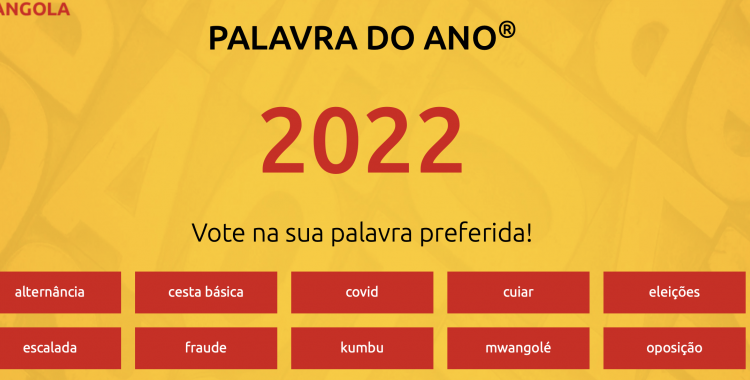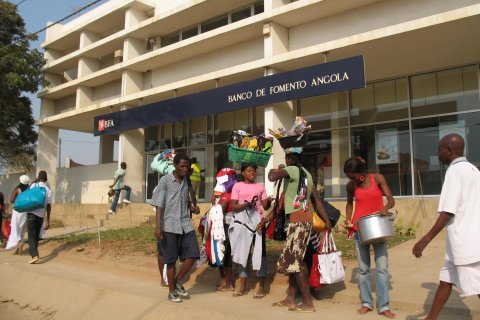The group of ten candidate words includes "alternance", in an allusion to the "government alternation" in Luanda, "basket", in a reference to the "increasing price of basic basket products" and also "covid", due to measures to combat the pandemic, "Cuiar", a word justified by, "despite the setbacks, the Angolans" manage to "always find something they are looking after", which means pleasant.
In the middle of the table of candidates is "elections", in a reference to this year's elections, which gave victory to the MPLA with 51.17 percent of the votes.
Other candidate terms are "escalation", justified by the "price escalation [which] has had a strong impact on the daily lives of Angolans", "fraud", in a reference to "combating fraud, in particular tax fraud, [which] has been one of the government's priorities", "kumbu", an Angolan expression to refer to money.
The list of ten candidate terms for "word of the year" in Angola closes with "mwangolé", which means "maintain optimism and good disposition", and "opposition", chosen within the scope of the recent electoral process, due to the increase in its representation margin.
Last year, "the word of the year" was "zungueira".
You can vote for the "word of the year" 2022 in Angola here.
The choice of the "word of the year" 2022 in Portugal also started on Thursday, at www.palavradoano.pt.
The list of ten words was drawn up by Porto Editora, "through the suggestions received on the initiative's website, user searches carried out in the Portuguese Language Dictionary, at www.infopedia.pt and the permanent work of observation and monitoring of reality of the Portuguese language", clarifies Porto Editora.
The list of candidates "allows us to draw a portrait of the events that marked the collective life of the country", argues the publisher.
"The Catholic Church set up an independent commission to investigate cases of sexual abuse in its institutions, having already received more than 400 complaints", hence the choice of the word "abuse".
The second candidate word is "cyberattack", justified by the fact that "cyberattacks [have reached] an unprecedented scale this year and seriously affected various organizations and companies".
The third term is "energy", justified by the "energy crisis caused by scarcity and difficulty in accessing energy sources", with "impact on the lives of families and companies".
"War" is the fourth term on the list of finalists, due to "Russia's invasion of Ukraine [which] started the biggest military conflict in Europe since World War II [1939-1945]".
In the middle of the table of candidate words appears "inflation". "The inflation rate largely surpassed that of previous years, reaching the highest value since 1992", argues Porto Editora.
The sixth term is "interest", insofar as "the increase in interest rates is raising the value of bank loan installments, creating difficulties for families and companies".
"Nuclear" follows, given the "risk of a nuclear disaster [which] has been on the agenda throughout 2022".
"The death of Queen Isabel II [who] ended one of the longest reigns in history" justifies the choice of another word in the competition, "queen".
Among the ten candidates for "word of the year" are still "drought" and "urgency" because, respectively, "in 2022, the country [has faced] one of the worst droughts in the last 100 years" and because "the cases of emergencies closed in hospitals across the country, especially in obstetrics and pediatrics services".
Last year, in Portugal, "vaccine" was elected "word of the year" which succeeded "saudade" (2020).
Voting for "the word of the year" in Portugal and Angola ends on the 31st and the winning word is announced in the first weeks of January 2023.







